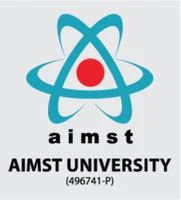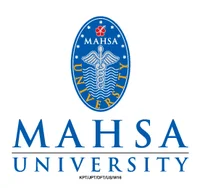
With applied sciences, you’ll explore how scientific knowledge can be used to address everyday challenges. And when it comes to pursuing this field, Malaysia offers an ideal blend of quality and affordable education.
Applied Sciences combine key elements from biology, chemistry, physics, and technology, offering a broad and interconnected view of scientific principles. Since this field is always changing with new discoveries, it keeps you constantly learning and engaged.
Whether you’re interested in biotechnology, environmental sciences, or physics, studying in Malaysia offers a great combination of affordable tuition and internationally recognized degrees. This makes it a fantastic choice for anyone looking to start a successful global career.
Let's explore why Malaysia is the best destination for international students to study and explore the world of applied sciences!
Why Study Pure and Applied Sciences in Malaysia: 5 Key Reasons
1. Affordable Tuition Fees
Malaysia offers high-quality education at significantly lower tuition costs compared to countries like the US and UK. Students get access to internationally recognized degrees without stressing their budgets.
2. Low Cost of Living
On top of affordable tuition, Malaysia is also known for its low cost of living. Rent, food, and transport are relatively inexpensive, allowing students to manage with an annual budget of around MYR 14,400 (~USD 3,440-4,600).
3. Growing Reputation in Higher Education
Over the past decade, Malaysia has become a top destination for international students. Government investments in education have helped Malaysian universities rank higher globally, making the country a leading education hub in Southeast Asia.
4. English-Friendly Environment
English is widely spoken in Malaysia, so students from abroad won’t face language barriers. While Bahasa Malaysia is the official language, most academic programs, especially in the sciences, are taught in English, making communication and study easier.
5. Multicultural Experience
Studying pure and applied sciences in Malaysia allows you to be part of a vibrant, multicultural community. With a diverse student population and strong ties to Southeast Asian industries, international students can have unique experiences, both academically and personally.
Top Universities for Applied Sciences in Malaysia
1. University of Malaya (UM)

| QS Global Ranking 2024 | #65 |
| Course Duration | 4 years |
| Estimated Cost | RM 8,000 - RM 9,000 |
UM’s Faculty of Science is known for its world-class research and academic programs. It ranks as the highest Malaysian university globally and is renowned for its extensive research in applied and pure sciences.
2. Universiti Kebangsaan Malaysia (UKM)

| QS Global Ranking 2024 | #159 |
| Course Duration | 4 years |
| Estimated Cost | RM 7,520 |
UKM's Faculty of Science and Technology offers a broad range of scientific disciplines with strong research capabilities, making it a prime destination for international students seeking affordable yet high-quality education.
3. Universiti Tunku Abdul Rahman (UTAR)
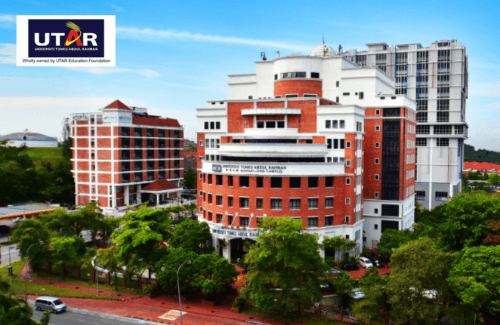
| QS Global Ranking 2024 | #474 |
| Duration | 3-4 years |
| Estimated Cost | RM 40,000 - RM 50,000 |
UTAR offers a diverse range of science programs and is recognized for its excellent teaching quality. The university is known for producing graduates with strong industry-ready skills, making it a competitive choice for students.
4. UCSI University
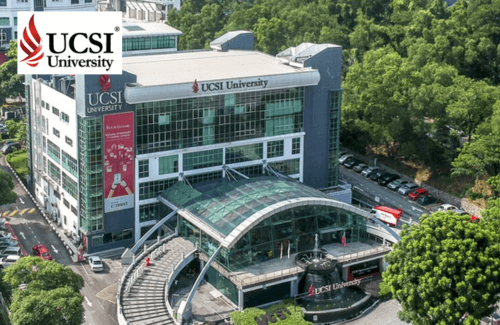
| QS Global Ranking 2024 | #300 |
| Duration | 3-4 years |
| Estimated Cost | RM 40,000 - RM 50,000 |
UCSI offers a wide range of applied science programs and ranks among the top private institutions in Malaysia. It is also recognized for its strong partnerships with industries and high employability of its graduates.
5. Sunway University

| QS Global Ranking (Asia) | #121 |
| Duration | 3 years |
| Estimated Cost | RM 23,000 - RM 40,000 |
Sunway University offers strong applied science programs, with dual degree opportunities from Lancaster University. It’s a rising star in Asia and offers modern research facilities and industry-focused learning.
6. Management and Science University (MSU)

| QS Global Ranking (Asia) | #147 |
| Duration | 3-4 years |
| Estimated Cost | RM 30,000 - RM 45,000 |
MSU's applied sciences programs emphasize industry-relevant experiences and hands-on training. Known for producing employable graduates, MSU ranks among the top private universities in Malaysia.
7. International Medical University (IMU)

| QS Global Ranking | #201-250 |
| Course Duration | 3-4 years |
| Estimated Cost | RM 60,000 - RM 80,000 |
IMU offers specialized programs in life sciences and biotechnology. It is widely respected for its high academic standards and international accreditations, making it an attractive choice for students aiming for a global science career.
8. AIMST University

| QS Global Ranking (Asia) | #74 |
| Course Duration | 3-4 years |
| Estimated Cost | RM 60,000 - RM 80,000 |
AIMST University offers a variety of applied science programs focusing on research and innovation. Its strong emphasis on practical training equips students with the skills needed for both academic and industry careers.
Top Applied Science Fields and Programs in Malaysia
Malaysia offers a variety of top-tier universities with strong applied science programs for international students.
Here's an overview of the most prominent fields in applied sciences, along with the top programs offered by universities.
1. Environmental Science
Environmental science programs in Malaysia focus on addressing global environmental challenges such as climate change, pollution, and resource management.
| Top Programs | Universities |
|---|---|
| Bachelor of Environmental Science | Universiti Malaya (UM) |
| Bachelor of Science (Environmental Science) | Universiti Kebangsaan Malaysia (UKM) |
| Bachelor of Environmental Health (Hons) | Management and Science University (MSU) |
2. Biotechnology
Malaysia is emerging as a hub for biotechnology, with programs focusing on the development of new technologies for healthcare, agriculture, and sustainability.
| Top Programs | Universities |
|---|---|
| Bachelor of Science (Biotechnology) | Nilai University |
| Bachelor of Science (Hons) in Biotechnology | AIMST University |
| Bachelor of Science (Biotechnology) | International Medical University (IMU) |
-
Physics
Physics programs in Malaysia provide in-depth knowledge of theoretical and applied physics, including topics like quantum mechanics, material sciences, and electromagnetism.
| Top Programs | Universities |
|---|---|
| Bachelor of Science Hons (Physics) | Universiti Tunku Abdul Rahman (UTAR) |
| Bachelor of Science (Physics) | Universiti Malaya (UM) |
| Bachelor of Science (Applied Physics) | Tunku Abdul Rahman University of Management and Technology (TAR UMT) |
4. Biomedical Science
Biomedical science programs in Malaysia are designed to train students for the medical and healthcare sectors, focusing on medical research and diagnostics.
| Top Programs | Universities |
|---|---|
| Bachelor of Science (Biomedical Science) | International Medical University (IMU) |
| Bachelor of Biomedical Science | Management and Science University (MSU) |
| Bachelor of Biomedical Science | Sunway University |
5. Forensic Science
Forensic science programs combine biology, chemistry, and law to train students in criminal investigations and laboratory analysis.
| Top Programs | Universities |
|---|---|
| Bachelors in Forensic Sceince | Management and Science University (MSU) |
| Bachelor of Science (Forensic Science) | Universiti Kebangsaan Malaysia (UKM) |
If you're unsure about choosing between an Honours Degree and a Bachelor's Degree, check out our comparison on Honours Degree vs Bachelor's Degree for a clear understanding.
What is the Cost of Studying Applied Sciences in Malaysia?
Foundation Programs
- Typically range from RM 10,000 to RM 15,000 for the entire duration (usually 1 year).
Diploma Programs
- Average costs range from RM 20,000 to RM 30,000 for the entire duration (usually 2-3 years), depending on the institution and specific course.
Bachelor’s Degree Programs
- Generally range from RM 25,000 to RM 50,000 for the entire duration (usually 3-4 years).
Admission Requirements for Applied Sciences: What you need to apply?
1. Academic Qualifications
- Foundation Programs: Completion of secondary education (minimum five credits including Mathematics and Science).
- Diploma Programs: Recognized foundation or equivalent qualification with relevant subjects (minimum three credits).
- Bachelor's Degree Programs: Completed diploma in a related field or equivalent qualification (specific subjects may be required).
2. English Proficiency
- TOEFL: Minimum score of 550 (paper-based) or 79 (internet-based).
- IELTS: Minimum score of 6.0.
3. Important Documents
- Completed application form.
- Academic transcripts (certified copies).
- English proficiency test results.
- Passport copy (valid for at least six months).
- Recent passport-sized photographs.
- Personal statement or statement of purpose.
Job Prospects After Studying Applied Sciences in Malaysia
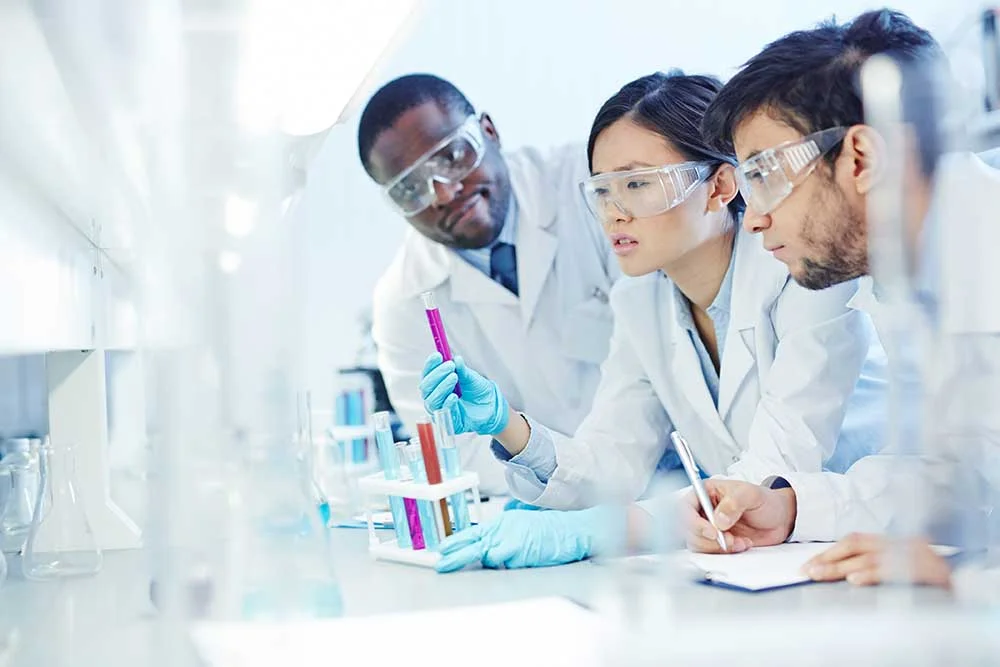
Graduates with degrees in applied sciences can find a wide array of job opportunities across various industries.
Here’s an overview of sectors that typically hire applied sciences graduates, potential job roles, and starting salaries:
| Industry/Sector | Job Roles | Starting Salary (RM) |
|---|---|---|
| Biotechnology | Biotechnologist, Research Scientist, Lab Technician | 3,000 - 4,500 |
| Environmental Science | Environmental Consultant, Ecologist, Environmental Scientist | 2,800 - 4,000 |
| Health and Medical Sciences | Medical Laboratory Technologist, Quality Control Analyst, Health and Safety Officer | 3,500 - 5,000 |
| Information Technology | Data Analyst, IT Consultant, Software Developer | 3,000 - 5,500 |
| Engineering and Technology | Engineering Technician, R&D Engineer, Project Engineer | 3,200 - 6,000 |
| Research and Development | Research Associate, Scientific Researcher, Product Development Specialist | 3,000 - 5,000 |
FAQs: Common Questions from International Students
1. Is Applied Science a good course?
Yes, Applied Science is a valuable course for students interested in real-world applications of science across various industries. Graduates enjoy high-demand job prospects in fields like biotechnology, environmental science, and engineering.
2. How much does it cost to study applied sciences in Malaysia?
Tuition fees for studying Applied Sciences in Malaysia range from RM 15,000 to RM 30,000 for diploma programs and RM 20,000 to RM 50,000 for bachelor's degrees. Additional expenses may include lab fees and living costs, averaging around RM 14,400 per year.
3. What are the best universities for applied sciences in Malaysia?
Some of the top universities for Applied Sciences in Malaysia include Sunway University, MSU, AIMST University, and UCSI University. These institutions offer various programs in fields such as biotechnology, environmental science, and physics. Many of them have strong international reputations and rankings.
4. Are there scholarships available for international students?
Yes, many universities in Malaysia offer scholarships for international students in Applied Sciences, such as those at Sunway University and MSU. These scholarships can be merit-based or need-based and help reduce tuition fees.
5. What is the visa process for international students?
International students need to apply for a Student Pass through the Immigration Department of Malaysia, requiring an acceptance letter from a Malaysian university and proof of financial capability. The process can take several weeks, so it's essential to start early.
For specific guidelines, consult your university and the official immigration website.
Get Help!
If you're thinking about studying Applied Sciences in Malaysia, our advisors are here to help you with your application. Contact our advisor now to choose the right program and university that fits your needs.
 +60173309581
+60173309581











